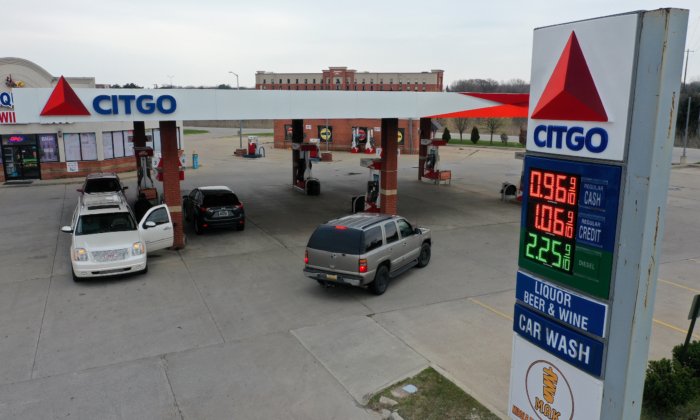CITGO Parent’s Legal Immunity: Venezuela Appeals to US Supreme Court for Ruling
The Venezuelan government is asking the U.S. Supreme Court to revisit a lower court ruling allowing creditors to go after the assets of the parent of its government-owned oil company that does business in the United States as CITGO Petroleum.
Any decision the Supreme Court makes could affect an upcoming court-ordered auction of shares in CITGO’s parent company.
The case is Bolivarian Republic of Venezuela v. OI European Group B.V., court file 23-140. In addition to the Venezuelan government, that country’s government-owned oil company, Petróleos de Venezuela S.A. (PDVSA), is also listed as a petitioner.
CITGO Petroleum Corp. states on its website that it is the indirect subsidiary of U.S.-based PDV Holding, a non-operating holding company that is incorporated in Delaware and headquartered in Texas. “PDV Holding is the indirect sole stockholder of CITGO Petroleum Corporation, through ownership of 100% of the shares of its direct subsidiary CITGO Holding Inc. CITGO Holding Inc. is the sole stockholder of CITGO Petroleum Corp.,” the site states.
Based in the Netherlands, the lead respondent, OI European Group, makes packaging products. Among the other respondents are Northrop Grumman Ship Systems Inc. (now known as Huntington Ingalls Inc.), Koch Minerals Sarl, and Gold Reserve Inc.
The court has given the respondent companies until Sept. 15 to respond to the petition.
Venezuela’s lead attorney, Donald Verrilli of the law firm of Munger, Tolles and Olson in Washington, filed a letter with the court on Aug. 17, saying that because “time is of the essence in this case,” the petitioners “will oppose any requests for extensions of time for responding to the petition.”
Several companies, including ExxonMobil and ConocoPhillips, are hoping the sale of shares in PDV Holding generates enough cash to satisfy claims they have against Venezuela or PDVSA. Around $20 billion in claims are reportedly outstanding.
A lower court found that PDVSA is the “alter ego” of the Venezuelan government. This holding “creates a very real risk that petitioner PDVSA’s principal asset in the United States—the shares through which it indirectly owns 100% of CITGO Petroleum Corporation—will be sold off by next summer,” says the petition.
Venezuela, which is said to be home to the largest proven oil reserves in the world, is asking the Supreme Court to declare that the “alter ego” ruling should not stand. On July 7, the U.S. Court of Appeals for the 3rd Circuit affirmed a ruling that allowed six companies to add claims worth $3.4 billion to an ongoing lawsuit.
The 3rd Circuit noted in the ruling that four years before, it had found that PDVSA operated as Venezuela’s alter ego and permitted a judgment creditor to attach PDVSA’s A shares in a U.S. subsidiary. Six creditors then registered their arbitration awards against Venezuela in the U.S. District for the District of Delaware seeking a writ of attachment against PDVSA’s holdings. They argued that changes in Venezuela’s government “destroyed the factual foundations supporting our prior alter-ego decision.”
“But even accounting for those differences, the District Court correctly concluded that PDVSA remains the alter ego of Venezuela,” the court said in affirming the district court’s decision.
In its petition to the Supreme Court, Venezuela is arguing that under the Foreign Sovereign Immunities Act (FSIA), a U.S. statute, foreign states “are presumptively immune from suit and attachment.”
An “instrumentality” of a foreign state is “presumptively independent from its parent government, and is independently entitled to FSIA immunity absent an alter-ego finding.”
But on April 19, the Supreme Court ruled in Turkiye Halk Bankasi A.S. v. United States that the immunity of an instrumentality of a foreign state is not absolute.
The Istanbul-based bank Turkiye Halk Bankasi, also known as Halkbank, is accused of participating in a criminal conspiracy involving money laundering, bank fraud, and assisting terrorism-sponsoring Iran in evading U.S. economic sanctions.
The U.S. government prosecuted the bank in a federal district court in New York for conspiring to evade the sanctions against Iran.
The Supreme Court held 7-2 that the district court had jurisdiction under federal law and that the FSIA doesn’t provide immunity from criminal prosecution.






